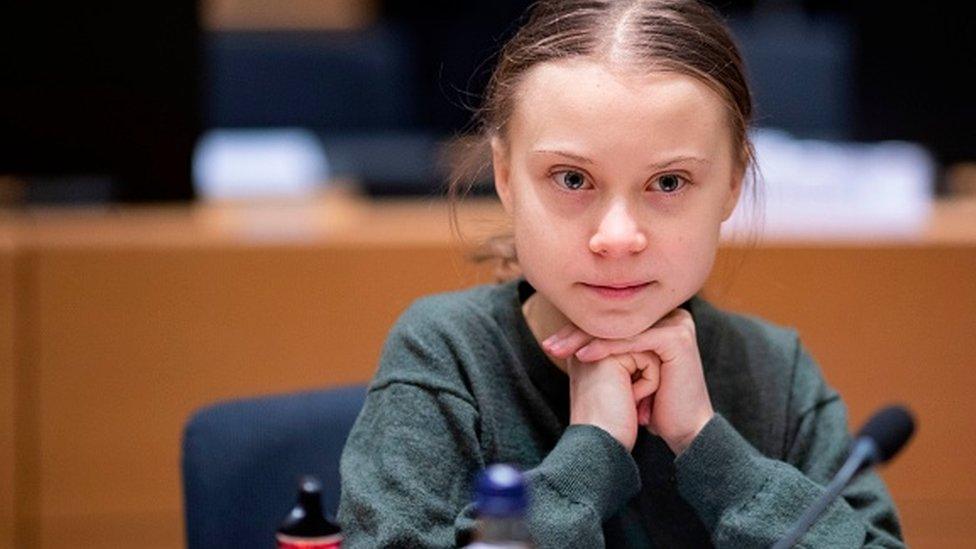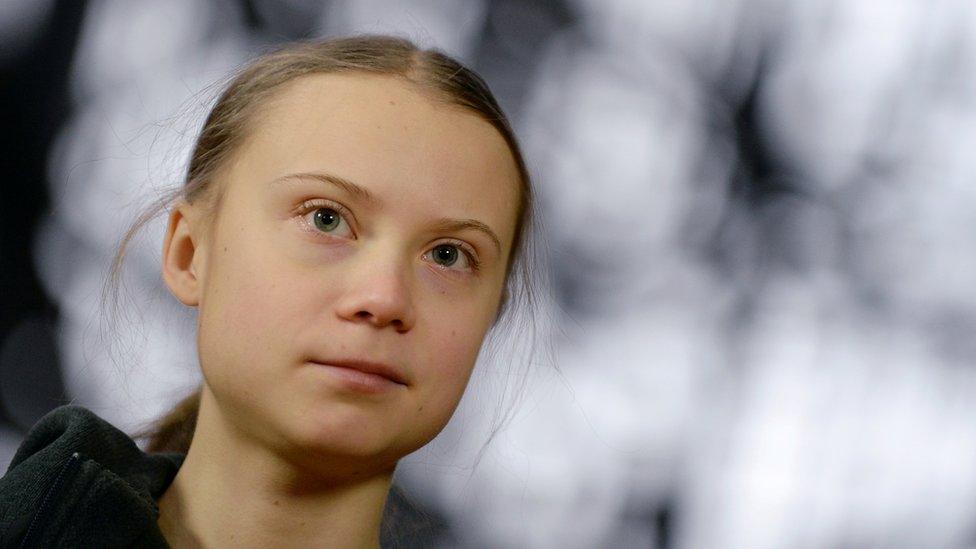Thunberg calls out climate impact of fashion brands in Vogue interview
- Published

Environmentalist Greta Thunberg called for a "system change" in the fashion industry
Swedish climate activist Greta Thunberg has condemned the fashion industry over its "huge" contribution to climate change, in a magazine interview.
Ms Thunberg told Vogue Scandinavia that fashion brands needed to take responsibility for the environmental impact of their products.
In a tweet, she accused some companies of "greenwash" ad campaigns designed to make their clothes appear sustainable.
Vogue Scandinavia, external featured Ms Thunberg, 18, on the cover of its first issue.
In the interview, Ms Thunberg said she last bought a new item of clothing three years ago and "it was second-hand".
"I just borrow things from people I know," Ms Thunberg said.
On Sunday she tweeted a picture of Vogue Scandinavia's front cover, which showed her wearing an oversized trench coat while petting a horse in a forest.
Allow X content?
This article contains content provided by X. We ask for your permission before anything is loaded, as they may be using cookies and other technologies. You may want to read X’s cookie policy, external and privacy policy, external before accepting. To view this content choose ‘accept and continue’.

In the tweet Ms Thunberg - one of the world's best-known climate campaigners - criticised "fast fashion that many treat as disposables".
The term "fast fashion" is used to describe the rapid, low-cost production of clothing to service demand for seasonal trends.
Calling for a "system change", Ms Thunberg said fashion could not be mass produced and consumed "sustainably as the world is shaped today".
The United Nations says the fashion industry is "widely believed to be the second-most polluting industry in the world".
It accounts for more than 20% of wastewater globally, the UN says., external About 93bn cubic metres of water - enough for five million people to survive - is used by the fashion industry every year.
As for carbon emissions, the industry is responsible for about 8% of the total worldwide. That's more than all international flights and shipping combined, the UN says.
In response to this, fashion brands have started to take action to reduce their environmental footprint.
But environmental campaigners like Ms Thunberg say many of these brands are promoting solutions that only appear to address the problem.
These companies are often accused of greenwashing, which is a form of marketing spin designed to mislead consumers about the environmental merits of a product.
Known for her impassioned speeches, Ms Thunberg has become a figurehead for the global climate change movement.
Her solo protest outside Sweden's parliament in 2018 inspired millions of young people to join her school climate strike campaign, Fridays for Future.
Since then, she has received Nobel Peace Prize nominations and travelled across the Atlantic on a yacht to attend a UN climate conference in New York.
Greta Thunberg: How long do you believe you'll get away with it?
Related topics
- Published8 January 2021

- Published4 March 2020

- Published5 October 2018
